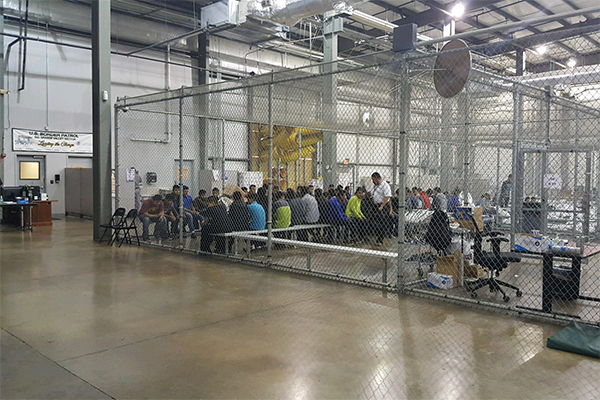Transnational Legal Clinic students ‘learn fast and work hard in a broken system’
Passing through the gate of the double-barbed-wire fence surrounding the Stewart Detention Center in Lumpkin, Georgia, Meroua Zouai thought about the Trump Administration’s anti-immigration policies and the people who bore the brunt of their cruelty—her clients. As a student in the University of Pennsylvania Carey Law School’s Transnational Legal Clinic, she had been granted a glimpse inside the U.S.’s punitive immigration system, and she was deeply frustrated with what she saw.
Between a legal apparatus that seemed “designed to retraumatize” her clients, the “unconscionable” conditions in which they were “caged” while awaiting trial, and the sheer intensity of the “fear and despair on their faces,” Zouai sometimes felt paralyzed by the scale of the injustice facing people seeking asylum in the U.S.
Inspired by the commitment, patience, and expertise of the clinic instructors, however, Zouai learned “how to channel my frustrations” towards fighting for “the best possible legal outcome for our clients.” She ended up enrolling in the clinic three semesters in a row.
Practice Professor of Law and director of the Transnational Legal Clinic Sarah Paoletti leads the clinic with adjunct law professor Ayodele Gansallo.
While the work of the clinic has always felt important, Paoletti says, “the Trump Administration’s assault on immigration has elevated the significance of the work we do. This is an area of law, policy, and practice where representation and critical legal analysis is more essential than ever to the recognition of the basic human rights and dignity of our client populations.”
Clinic students represent clients from around the world attempting to obtain asylum and victims of human trafficking and other crimes hoping to secure visas in proceedings before immigration courts and U.S. Citizenship and Immigration Services. In recent years, Paoletti has also taken students on week-long trips to work with clients in immigration detention centers in Tijuana, El Paso, and York, Pennsylvania.


